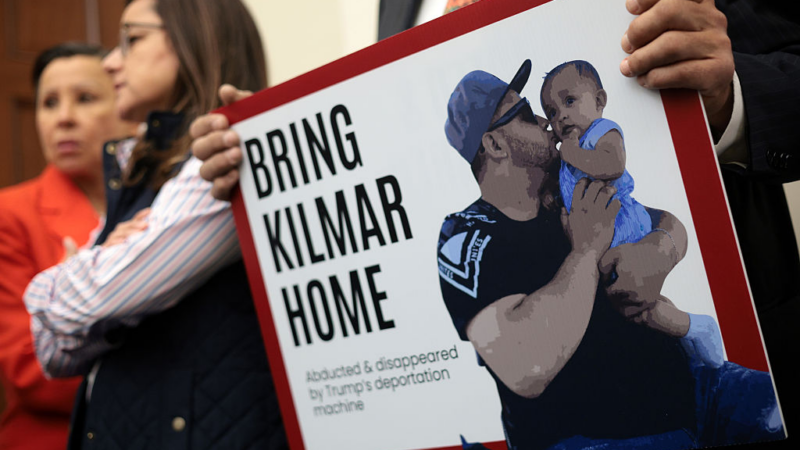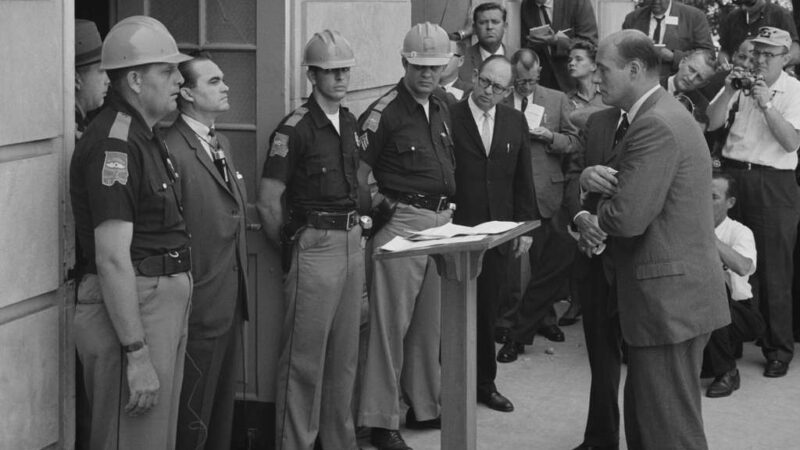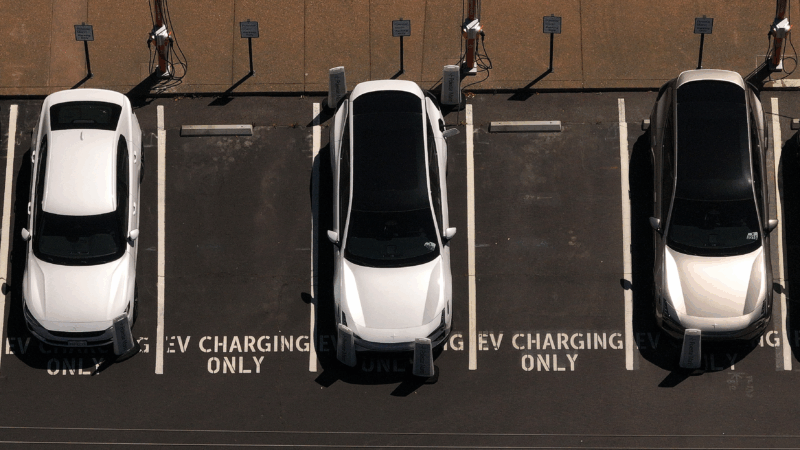Trump admin tells judge man wrongly deported to El Salvador is alive, still detained
A Maryland man who was wrongly deported to El Salvador is alive and still detained in the country, the Trump administration said in a filing to a federal judge on Saturday.
Kilmar Armando Abrego Garcia is being held at El Salvador’s Terrorism Confinement Center, according to Michael G. Kozak, a senior official in State Department’s Bureau of Western Hemisphere Affairs, citing the United States’ embassy in San Salvador in the filing.
“He is alive and secure in that facility. He is detained pursuant to the sovereign, domestic authority of El Salvador,” Kolzak also wrote.
The filing follows federal judge Paula Xinis’ order on Friday that the Trump administration provide daily updates on their efforts to return Abrego Garcia to the U.S.
In her new order, which was issued after the Supreme Court upheld her original order to bring Abrego Garcia back, Xinis directed the federal government to “take all available steps to facilitate the return” of Abrego Garcia to the U.S.as soon as possible. She also ordered the Justice Department to provide an immediate update on his location and status, the steps the government has taken so far to bring Abrego Garcia back and what additional actions it is considering.
The Trump administration on Friday asked for more time to answer Xinis’ questions, arguing that the government needs “a meaningful opportunity to review the Supreme Court’s decision before it is ordered to report what steps it will take in response to that decision.”
Abrego Garcia is a Salvadoran citizen who has lived in Maryland for almost 15 years. While he initially entered the U.S. without being granted legal status, a federal judge in 2019 granted him protection from being deported, due concerns for his safety if he were to return to El Salvador. He also has had no criminal record.
Abrego Garcia was arrested in March and, a few days later, placed on a flight with other men the Trump administration alleged were members of the Venezuelan gang Tren de Aragua. A Justice Department lawyer conceded in court that Abrego Garcia’s deportation was a mistake, or as he put it, an “administrative error.”
Abrego Garcia’s attorney, Simon Sandoval-Moshenberg, said in a statement to NPR, “We are incredulous. Twenty-four more hours and still no answers as to what they’ve done so far, and what they’re planning to do going forward, to carry out the Supreme Court’s ruling.”
NPR’s Joel Rose, Nina Totenberg and Christina Gatti sontributed to this report.
How George Wallace and Bull Connor set the stage for Alabama’s sky-high electric rates
After his notorious stand in the schoolhouse door, Wallace needed a new target. He found it in Alabama Power.
FIFA president defends World Cup ticket prices, saying demand is hitting records
The FIFA President addressed outrage over ticket prices for the World Cup by pointing to record demand and reiterating that most of the proceeds will help support soccer around the world.
From chess to a medical mystery: Great global reads from 2025 you may have missed
We published hundreds of stories on global health and development each year. Some are ... alas ... a bit underappreciated by readers. We've asked our staff for their favorite overlooked posts of 2025.
The U.S. offers Ukraine a 15-year security guarantee for now, Zelenskyy says
Ukrainian President Volodymyr Zelenskyy said Monday the United States is offering his country security guarantees for a period of 15 years as part of a proposed peace plan.
Genre fiction and female authors top U.S. libraries’ most-borrowed lists in 2025
All of the top 10 books borrowed through the public library app Libby were written by women. And Kristin Hannah's The Women was the top checkout in many library systems around the country.
Electric vehicles had a bumpy road in 2025 — and one pleasant surprise
A suite of pro-EV federal policies have been reversed. Well-known vehicles have been discontinued. Sales plummeted. But interest is holding steady.








